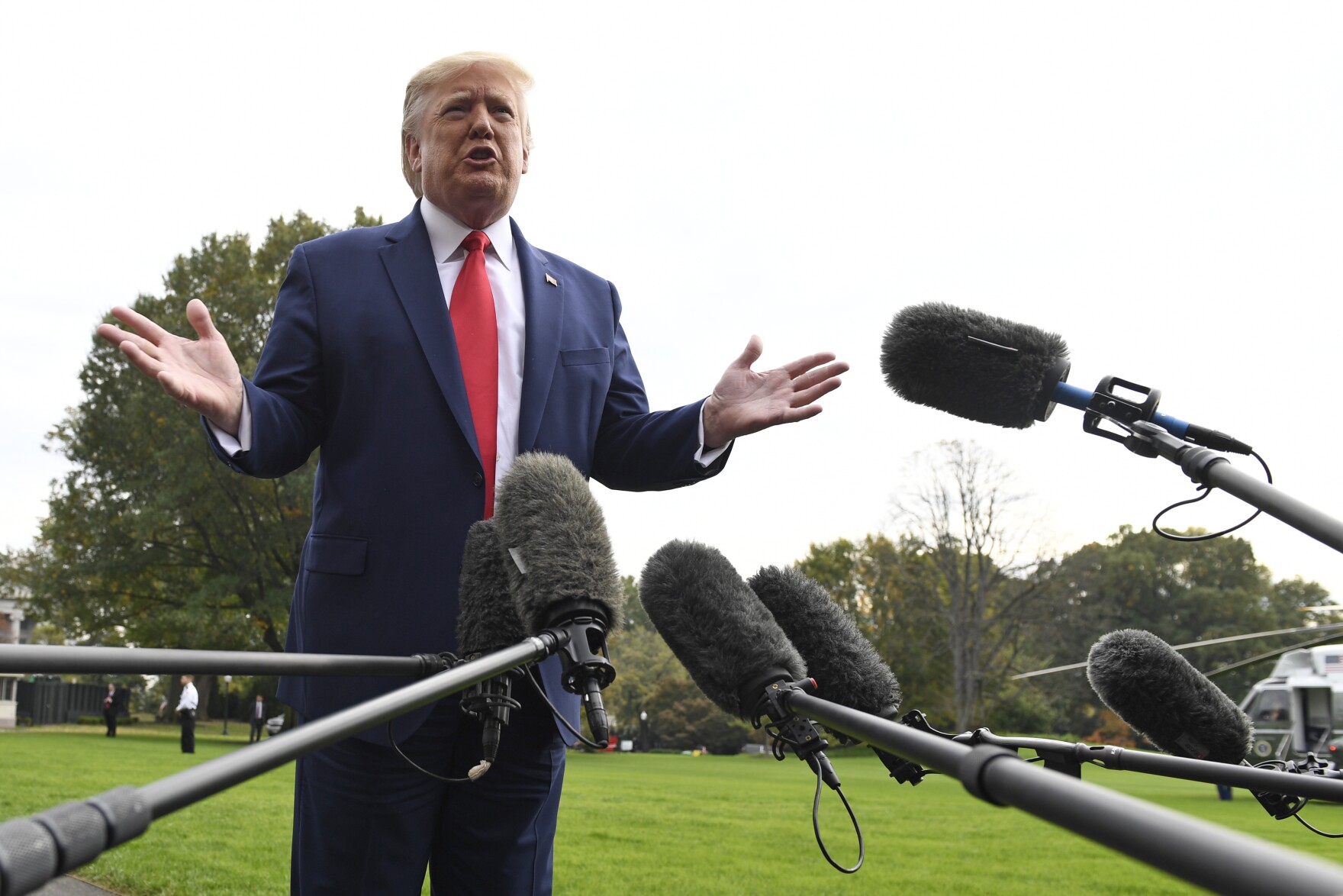Editor’s Note: This post will compile past and future stories — including comments, votes and other responses from West Virginia’s congressional delegation — related to the impeachment inquiry against President Donald Trump. Please check back often for the latest.
Like all members of Congress — 435 in the House (with three seats currently vacant) and 100 in the Senate — West Virginia’s delegation is set to play a role in the impeachment process.
After evidence has been gathered — a committee would draft, amend and adopt one or more articles of impeachment before handing the process over to the full House of Representatives. If and when articles of impeachment are adopted by the full House, Trump would stand trial in the Senate — with members acting as jurors. A two-thirds majority would be needed to convict him in a Senate trial.
(West Virginia Public Broadcasting will detail the state delegation’s votes and request comment on that and other procedures moving forward throughout the impeachment inquiry process.)
Trump commanded strong support in West Virginia in the 2016 election, taking 68.5 percent of votes and beating Democrat Hillary Clinton by 42 percentage points.
But will West Virginia’s congressional representatives and senators stick with Trump and oppose his impeachment? So far, comments and actions from the state’s three Republicans in the House of Representatives and Sen. Shelly Moore Capito, seem to indicate they will.
So far, only moderate Democrat Sen. Joe Manchin has said that an investigation into Trump’s possible holding out of foreign aid to Ukraine — in exchange for an investigation into Democratic presidential candidate Joe Biden and his son — is warranted.
October 31: West Virginia House Members Oppose Resolution Outling Impeachment Inquiry Procedures
The U.S. House of Representatives adopted a resolution Thursday, October 31, formalizing its impeachment inquiry into President Donald Trump. As part of a 232-196 vote, West Virginia’s three House members — all Republicans — voted against the measure.
Prior to Thursday’s vote, Rep. Alex Mooney and Rep. Carol Miller had protested closed-door depositions that had been held. They called for more transparency in the impeachment inquiry process.
October 23-24: Reps. Mooney, Miller Take Part In GOP Protest Of Depositions
On Wednesday, October 23, Republicans staged a protest of closed-door depositions being held by three committees spearheading the impeachment inquiry.
At the heart of those protests were Rep. Alex Mooney and Rep. Carol Miller — of West Virginia’s 2nd and 3rd Districts, respectively.
Photos and video of Mooney show the congressman making his way towards a secure compartmented information facility — known as a SCIF — with a cell phone in hand. He said he gave up his phone on the way in and, in a tweet, he dispatched audio from inside the facility.
In an interview with West Virginia Public Broadcasting a day later, Mooney defended his role in the protest and even claimed the idea as his own.
“Committee hearings aren’t supposed to be done in secret,” he said. “This is a basic thing of government and I don’t care where you stand on the issues — Republican or Democrat, or if you like Trump or you don’t like Trump. Committee hearings are not supposed to be done in secret, particularly impeachment inquiries.”
However, Republicans from three House panels — the Intelligence, Oversight and Foreign Affairs committees — have been able to participate in the deposition hearings.
Rep. Carol Miller— who sits on the Oversight Committee and has had access to the depositions — was also involved in the GOP protest.
A spokesperson for Rep. David McKinley said the congressman did not take part.
September 24-25: Delegation Weighs In On Launch Of Impeachment Inquiry
A day after Speaker Pelosi announced the launch of the impeachment inquiry, members of West Virginia’s congressional delegation offered their initial thoughts on the matter.
Republicans took aim at Pelosi and called the inquiry “partisan theatrics.”
As the state’s lone Democrat in Washington, Sen. Joe Manchin, took a non-prejudicial tone.
“Any allegation of misconduct with a foreign country must be investigated. I firmly believe it is premature to jump to any conclusion until an investigation of the facts is complete,” Manchin said in a statement at the time.
Manchin went on to say that he takes his “responsibility in the process very seriously,” and that “the Senate’s role is to evaluate the facts.




















